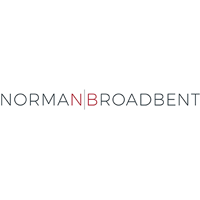This quarter has seen, overall, a general increase in optimism since last summer. While optimism collapsed following the result to leave the European Union and then fell again following the June general election; the latest survey shows an obvious bounce back from the post-election blues with optimism near levels not seen since the end of last year.
A recent report from Deloitte last quarter said that over 72% of CFO’s expected some negative long-term effects from Brexit, this has now decreased back down to 60%. We also saw a large reduction in uncertainty this quarter with levels dipping to just around 34% down now back to their pre general election levels.
However, this does not paint a whole picture of the current climate. CFO’s continue to report cost pressures are at their highest not seen in more than six years meaning profit expectations continue to languish. Even with the decrease in uncertainty, levels still remain high and unsurprisingly enough 58% of CFO’s continue to rate Brexit as their chief risk. Another major risk cited by CFO’s was related towards a week UK demand, with around 92% of CFO’s surveyed by Deloitte expected rates to rise in just a years’ time from its level of 0.25%
Norman Broadbent Interim saw a dramatic increase in demand for Finance Interim Transformation specialists who could support businesses with defining the new target operating model in addition to recruiting interim Shared Services Centre Specialists who have had a wealth of expertise in relocating or outsourcing back office functions such as P2P, O2C and R2R functions to more cost effective locations. For many CFO’s it was not only about reducing cost, but implementing a more consistent process across the collective business and trying to automate and standardise their high volume transactional tasks.
The result of this is that even with a shift towards optimism the current climate has still not encouraged CFO’s to leave the defensive mentality they adopted in the second quarter. They have however softened their defensive strategies when it comes to cost reduction, which has dropped to 41% from 46% and increasing their cash flow. Despite that however, the current climate has not encouraged CFO’s to make any further emphasis on expansionary strategies. Firms are now placing less emphasis on the introduction of new products and services as well as expanding via acquisition. With this mixture of both increased optimism yet continued difficulties within the UK market, CFO’s are continuing their defensive stance but are placing less emphasis on their defensive strategies which we saw within the second quarter.
As we continue on into the next quarter, a greater focus for organisations turns now towards the euro area. Its continued growth, the ECB now expecting it to reach 2.2% in 2017, the fastest rate in a decade and a reduction in economic and deflations concerns means the euro area currently offers firms greater stability and investment.
The challenge for CFO’s remains finding ways to increase revenues in the face of increasing operating costs. While we saw an improvement in capital expenditure, hiring and discretionary spending in the third quarter, 71% of CFO’s expect operating costs to increase, which would lead it to the highest levels in more than six years.
Norman Broadbent Interim has seen a high level of demand for Interim Commercial Finance Directors as well as Interim ERP system implementation specialists. Businesses are now requiring a greater degree of commercial insight from their finance leaders to support their strategy over the next 2 – 3 years, coupled with high levels of demand for finance implementation specialists to deliver new ERP systems. Many clients are striving to achieve greater commercial insight across the business through operating on one technology platform.
Norman Broadbent Interim have noticed an increase in the use of Consultancies to help review and advise on reengineering their operating model and make strategic recommendations on how best to do this. Clients are now requiring interim Finance professionals who will support in the delivery of this strategy and embed new processes on time and on budget. When asked why not use the consultancy to do this? The responses tend to reflect clients requiring a more cost effective delivery solution, with the emphasis being on knowledge transfer to their existing team as well as upskilling their existing workforce through this process to ensure effective delivery of business as usual post implementation.
In conclusion, optimism, driven by increased stability and growth internationally, is improving alongside a reduction in risk perception yet levels continue remain high. Brexit still dominates the landscape when it comes to risk and firms, despite becoming more optimistic this quarter than last are still uncertain about the level of growth the UK can expect in the future.


